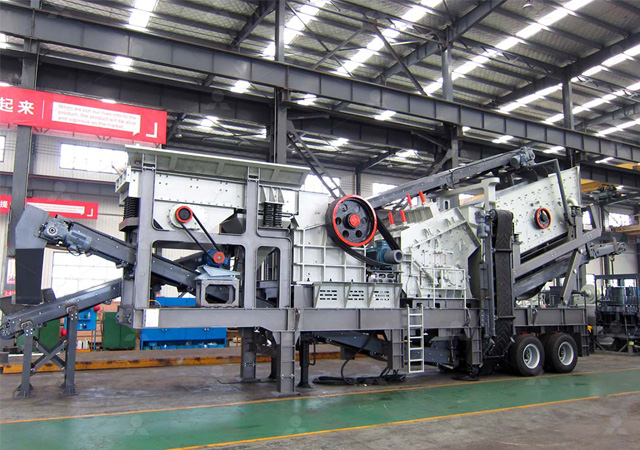A mobile crusher is a versatile piece of machinery that is widely used in the mining and construction industries to crush various types of rocks into smaller, manageable pieces. These crushers are specifically designed to operate in remote or rugged locations, making them essential for projects like road building, mining, and recycling where materials need to be processed on-site. Here’s an overview of mobile crushers, focusing on their application across different rock types.

Types of Mobile Crushers
Mobile crushers come in various types, each suited to different rock crushing needs. The primary types include:
- Jaw Crushers: Ideal for the primary crushing of large rocks. Jaw crushers work by applying compressive force to the material, breaking it into smaller pieces. They are particularly effective on hard and abrasive rocks such as granite and basalt.
- Impact Crushers: Suitable for softer and medium-hard rocks like limestone and gypsum. These crushers use impact rather than compression to break down rocks, making them ideal for producing aggregates with a more cubical shape, which is often desired in construction.
- Cone Crushers: Known for their high productivity and efficiency, cone crushers are used for secondary and tertiary crushing of medium to hard rocks. They work by squeezing the material between an eccentrically rotating cone and a concave surface, which leads to size reduction.
- Mobile Screeners and Crushers: Some mobile crushers come with integrated screening systems, allowing them to process and sort materials in one go. These machines are perfect for producing different grades of materials like sand, gravel, and smaller rock fragments.
Application in Different Rock Types
- Hard Rocks (e.g., Granite, Basalt, Quartzite):
- Jaw Crushers are typically the first choice for crushing hard rocks due to their durability and ability to handle large chunks of material. These crushers can efficiently reduce hard rocks into smaller pieces suitable for further processing.
- Cone Crushers follow up by further reducing the material to desired sizes and shapes, which is crucial in aggregate production for road building or concrete mixing.
- Medium-Hard Rocks (e.g., Limestone, Sandstone)
- Impact Crushers are commonly used for medium-hard rocks. Limestone, for instance, is often crushed using an impact crusher to produce aggregates for cement production, as well as for road base and other construction purposes. These crushers are effective at creating fine materials with consistent grain sizes.
- Soft Rocks (e.g., Gypsum, Coal)
- Impact Crushers and Hammer Crushers are well-suited for soft rocks. These machines are efficient in producing finely crushed material, which is useful in industries such as cement manufacturing, where soft minerals need to be ground into a fine powder.
- Mixed Rock Types
- Mobile Crushers with Multiple Crushing Units: In situations where the rock composition is varied, or multiple rock types need to be processed, mobile crushers with multiple units can be deployed. These units can combine a jaw crusher for primary crushing, a cone crusher for secondary processing, and a screen to separate the crushed material into different sizes.
Advantages of Mobile Crushers
- Mobility: As their name suggests, mobile crushers can be easily moved between sites, making them ideal for projects where the material source is far from the processing area. This eliminates the need for transporting raw materials to a central crushing location, saving time and costs.
- Versatility: Mobile crushers can be used across various applications, from mining operations to recycling concrete and asphalt. Their adaptability to different rock types and sizes ensures that they can meet the specific needs of different projects.
- Efficiency: Modern mobile crushers are equipped with advanced technology that allows for real-time monitoring of the crushing process, ensuring maximum productivity. Features like remote control operation, automated settings, and integrated screens further enhance their efficiency.
Mobile crushers are indispensable in modern mining and construction, offering a flexible, efficient, and cost-effective solution for processing various rock types on-site. Whether dealing with hard granite or soft limestone, there’s a mobile crusher suited to the task, capable of transforming raw materials into valuable aggregates for a range of applications.
